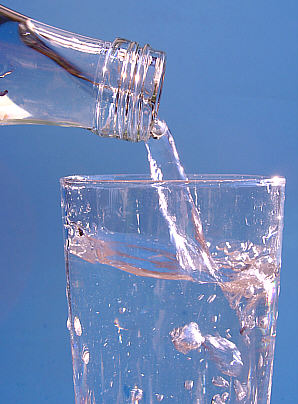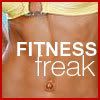That's right, good old H2O has a lot to offer without all the hype. Drinking the recommended amount of water daily provides natural energy, assists in proper digestive processes, and helps to metabolize stored fat, aiding in the weight-loss. It offers many other health benefits, working to keep muscles and skin toned as well.
So, how much should you be drinking?
A study by the National Academy of Science says that women should be taking in approximately 91 ounces of water per day in food and beverages, which is about two and a half liters. For men, it is 125 ounces or about three and half liters daily. Although it may sound like a lot, consider that 20 percent of our water intake comes from foods. Overweight people need to drink an additional eight-ounces for each excess 25 pounds.
Floridians need to remember that with heat comes sweat, therefore more water is necessary to maintain proper hydration. Thirst should always be your guide. Being thirsty is the body's way saying it needs hydration.
 More water is necessary when exercising. If dehydration sets in fatigue, weakness, headache, or lack of concentration are likely to follow. Dehydration prevents the body from performing at its peak fitness level. In addition, it can lead to excess body fat, poor muscle tone/size, as well as decreased digestive efficiency and organ function according to Fitness magazine. Without enough water, the body has increased toxicity, joint and muscle soreness, and water retention.
More water is necessary when exercising. If dehydration sets in fatigue, weakness, headache, or lack of concentration are likely to follow. Dehydration prevents the body from performing at its peak fitness level. In addition, it can lead to excess body fat, poor muscle tone/size, as well as decreased digestive efficiency and organ function according to Fitness magazine. Without enough water, the body has increased toxicity, joint and muscle soreness, and water retention. Often times we can mistake hunger for thirst, try drinking an eight-ounce glass of H2O before diving into a meal, you will be less likely to overindulge. Try a bottle of water instead of an afternoon snack; you may just be in need of some liquid refreshment (try flavored water to add a little taste).
Simple Hydration Tips:
- Start hydrating early by drinking 1-2 cups of water in the morning
- Keep a water bottle with you all day long
- Drink before you get thirsty
- Drink 1-2 cups of fluids 30 minutes before exercise
- Drink ½ - 1 cup of fluid for every 15 minutes of exercise
- Keep drinking even after your thirst is quenched


No comments:
Post a Comment